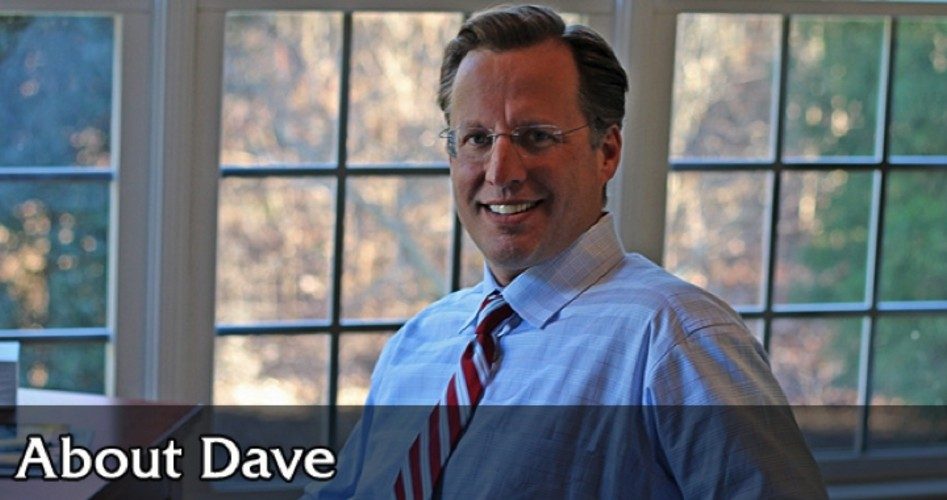
The primary victory of Randolph-Macon College Economics Professor David Brat (shown) over sitting House Majority Leader Eric Cantor will make the voting pattern of the district more constitutionally oriented, but David Brat’s public pronouncements reveal it’s still too early to tell how much better he will be.
Brat — if he survives the November final election in the Republican-leaning Virginia seventh congressional district — will replace one of the most liberal Republicans in Congress. The immigration issue was the issue upon which the mainstream media focused upon as the decider in the GOP primary. Brat — who opposes amnesty for illegal aliens while the border remains unsecured — said that it was a part of the difference. “Immigration is a part of that aspect, but I ran on the fiscal issues and the Republican creed which starts off with the main thing I’m interested in and that is a commitment to free markets,” Brat told MSNBC’s Chuck Todd on the day after the June 10 primary. “Amnesty, at the end, was a clear differentiator between myself and Eric Cantor.”
Immigration was far from the only issue in Brat’s campaign against Cantor’s record. Brat primarily hit Cantor on three main fronts: Cantor’s support for immigration amnesty, federal debt level increases, and crony capitalism through the Export-Import Bank and the Federal Reserve Bank.
Cantor earned a 56-percent cumulative rating with The New American’s “Freedom Index,” among the most liberal Republicans in the Congress. Cantor’s record reflects the very worst of crony capitalists, voting for the airline bailout in 2001, the TARP bailout in 2007, and ongoing corporate welfare through the Import-Export Bank. So the crony capitalism/corporate welfare issue provided a stark contrast that was a highlight of Brat’s campaign. Asked by MSNBC’s Chuck Todd if he was “anti-Wall Street,” Brat responded: “I’m not anti-Wall Street, I’m anti-distortions to free markets. Anything that distorts the free market, I’m against.”
Crony capitalism was a focal point by the small amount of independent support Brat received in the primary election, including a radio and television advertisement from the Virginia Vision Action PAC which complained:
You’ve learned how Eric Cantor is teaming up with big labor to raise money and defeat Tea Party conservatives. Now, another fact: Cantor is trying to line himself up to be speaker. But conservatives in Congress are pushing back, fighting Cantor’s plan for taxpayers to fund billions in corporate welfare through the Import-Export Bank. Cantor has by-passed conservative committee chairs and is working with Democrats to pass this taxpayer rip-off.
Dr. Brat, a Catholic, has made a point about his attendance at Princeton Theological Seminary and the importance of the intersection of the moral and secular law, and some in the mainstream media have dismissed him as a functionary of the so-called “religious right.” But Brat’s focus has been on economics and the free market, though he has issued mixed signals on international organizations. While stating he was opposed to the United Nations organization in a stump speech, he told Chuck Todd he favored the GATT international trade regime:
I’m a free trader. After World War Two, the GATT, the free trade GATT association, brought tariffs roughly from 50 percent down to around four percent today. That’s been good for us.
On foreign policy, Brat has indicated he will be closer to the Dick Cheney wing of the GOP than the Ron Paul wing, telling Chuck Todd:
It’s absolutely necessary that the United States does project its power abroad. I think our Defense Department is bigger than the next ten combined. And without that, I think you would have chaos.
This may explain why David Brat was championed by two interventionist national talk-radio hosts, Laura Ingraham and Mark Levin. But it remains to be seen if he is as interventionist as the statement above implies.
Non-interventionist Republicans have seized upon the fact that Brat replaced 23-year-old Zach Werrell — a Ron Paul Republican — as campaign manager with Eric Cantor’s 2010 campaign manager as an indication that Brat will move toward the establishment line on foreign policy. But Werrell, a recent Haverford College graduate, complained on his Facebook page of “exhaustion” after the primary and will remain an advisor to Brat in the general election. Brat, for his part, said he would consider every case of intervention individually and seemed to shy away from advocating intervention in Syria when asked about it by MSNBC’s Chuck Todd.
Much of the mainstream media has touted the astonishing success of Werrell’s position of Brat to win an underfunded primary election against one of the most powerful Washington incumbents where Cantor enjoyed a 20-1 funding edge. Clearly, Werrell provided better grassroots support than Cantor’s campaign. The Brat campaign also highlighted several issues that had broad appeal across the political spectrum. Interestingly, leftists claim that Werrell had used a system developed for Democrats back in 2004 to unseat Cantor. Steve Adler claimed in Campaigns and Elections magazine June 24 that his rVoter system helped push Brat over the edge. “In extreme cases, a razor sharp grassroots effort can make $200,000 more powerful on Election Day than an opponent’s $5 million.”



